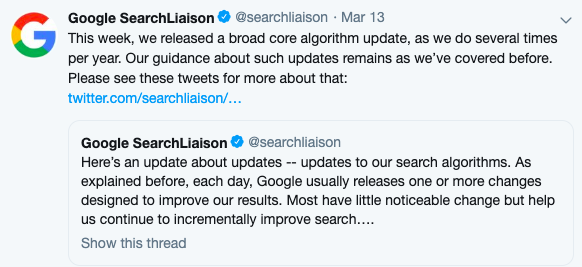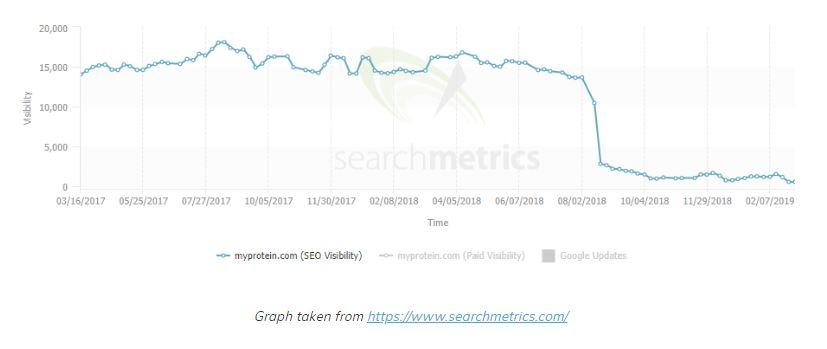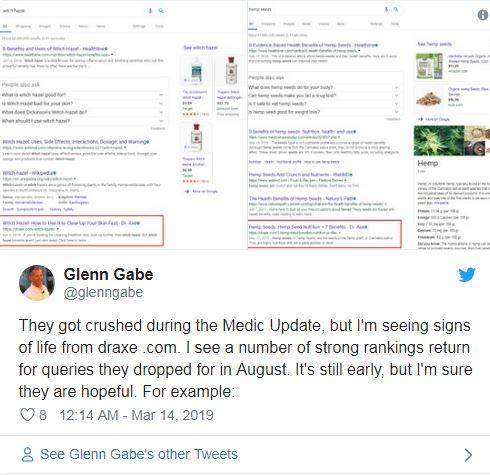About the Update
On the 12th of March 2019, Google rolled out a core update to its algorithm. It was announced by Google on the 13th. Google regularly updates its algorithms. This has an effect on search results and hence is of interest to Webmasters and those who work on SEO. These updates according to Google are routine in nature. Here, one must remember the last update that happened in August 2018. Since then, there had been no major update and this is the first update of the year.

The Medic update, as the previous one was called, had an effect on many websites. It was called the medic update as it impacted websites of the health and medical domains. A survey revealed that 42% of affected sites were from the medical and health domains.
Florida 2
This update has positively impacted some of the sites that had been affected by the Medic update. Others have been negatively impacted. There have been a lot of effects as a result of this update. This update is not considered as one of the biggest updates of the Google algorithm to have happened. Some experts have called this update as Florida 2.0.
The reason for this that it happened at the same time as the Pubcon Florida 2019 conference. Brett Tabke the founder of Pubcon has named it Florida update.
Results of the update
The update has affected many a site. Some sites have reported a doubling of their visitor traffic after the March 2019 update. Sites that had been negatively affected by the August Medic update have seen on an average an increase of an average of 30% in traffic. Analysis done by SEO experts has shown that the changes have been not specific to a few pages but to websites as a whole. The entire site has seen an impact of the update. It would not be wrong to conclude that the Florida 2.0 update has impacted entire domains and is thus highly significant.
Some had related this to another algorithm referred to as Penguin. But the Penguin algorithm works on individual pages, while Florida 2.0 works on the entire domain.
Another speculation in the world of SEO experts was that the algorithm change had led to a change in Google’s Neuro-linguistic engine. It is this engine that recognizes keywords and makes changes in website rankings based on keywords. An analysis of websites showed that while the number of organic keywords was the same, the ranking of sites had substantially increased. This clearly shows that there was no change in the Neuro-linguistic engine of Google.
What does the analysis reveal?
A detailed analysis was done of some sites that had been negatively affected by the Medic update. The analysis shows that some sites like draxe.com and medicine.com had seen a bounce back in traffic. However, this did not result in restoring traffic to pre-August levels. But this clearly shows that the ranking functions that had been changed in August 2019 in the Medic update had now been restored or changed again in the March 2019 Florida 2 update.

An interesting analysis has been made of a site CBDOiluser.com. When we look at the sites, we find that an over surfeit of keywords. All over the site in the side panel, links, and many other places, the keyword has been repeated multiple times. This is a clear cut case of over optimization of keywords. As a result, the site had been badly hit by the Medic update. This shows that the Medic update had an algorithm that brought down the ranking of sites that over-optimized keywords. But now, with the same kind of keywords, its ranking has been restored fully to the pre-Medic levels. A details analysis of this website reveals some interesting insights:
- The site has good quality content.
- The overall user experience of the site is good.
From this, we can conclude that Google’s algorithm change is now not so much focused on punishing keyword over optimization. Instead, it rewards quality content and positive user experience.


There was a rumor that the update was a reversal of the medic update of August 2019. Some webmasters pointed to websites which had been affected by that updated and claimed that they had made a recovery. draxe.com is such a website. It experienced a huge drop following the medic update in August 2018 and only made a slight recovery. So, a high proportion of websites affected by the August Medic update witnessed varying degrees of change. The SERP rankings of websites which weren’t affected by Medic update changed.
Lessons to be learned
Further analysis has been carried out of many other websites to get a clear and detailed picture of how this update works. Another site everydayhealth.com had seen an increase in traffic in August, but has now been hit negatively. An analysis of the site shows an overdose of ads all over the sites. There is also a sticky sidebar and multiple popups. This negatively affects user experience. This is the reason why the site has lost out.
The analysis reveals some telling points:
- Too many ads and affiliate links have hurt web rankings post March’19.
- Poor navigation creates a bad user experience and affects sites negatively.
- Lack of proper quality content also has led to a drop in traffic.
- The quantity of exact matching keywords within the content on page 1 has decreased by 5%. This is because Google now feels the exact keyword matching is not as important as quality content.
- Sites that load faster are performing better post-Florida 2. This is because fast loading sites enhance user experience.
From this, it wouldn’t be difficult to conclude that those sites that do not focus on user experience and content have been impacted by the update.
How to handle the change?
If your site has been affected by the change, then you need to clearly relook at the quality of the content you have, the navigation, and the overall user experience. A professional appraisal of the site would reveal problems with user experience. If this is fixed, then there is no reason why the affected site cannot bounce back in the rankings again.
Even if your site was not affected, you need to keep in mind what Google says, which is that building great content should be the focus for websites. All webmasters need to thus keep the following in mind:
- Good quality content is the key. This leads to better user metrics and hence Google rewards such sites.
- Great user experience is what makes visitors like your site and stay on it. This would happen if the navigation is good, there are no broken links and there are no irritating ads. Such sites would be rewarded by Google. Sites which have a higher commercial intent are performing less satisfactorily than the ones which have a lower commercial intent.
- While earlier over optimization of keywords would be penalized by Google, now the focus is more on content and user experience. Even if sites have too many keywords, Google doesn’t downgrade their rankings.
- Following the 2019 update, quick loading websites have gained more importance than before since faster pages enhance user experience.
- Quality of backlinks is now a less important factor than before. But the power of backlinks pointing web page rankings has stayed the same. This signifies that Google is giving precedence to web pages with fewer but high-quality links.
You need to thus concentrate on the content on your website so that users visiting would get the information they want. Good navigation, faster loading creates a better experience leading to a higher ranking.
Google will keep on updating the algorithms to improve user’s search experience and provide better search results. There are no quick fixes for any of these updates. Webmasters should keep on working on their website steadily, and over a period of time Google might acknowledge those changes. Thus, improving the rankings.
























